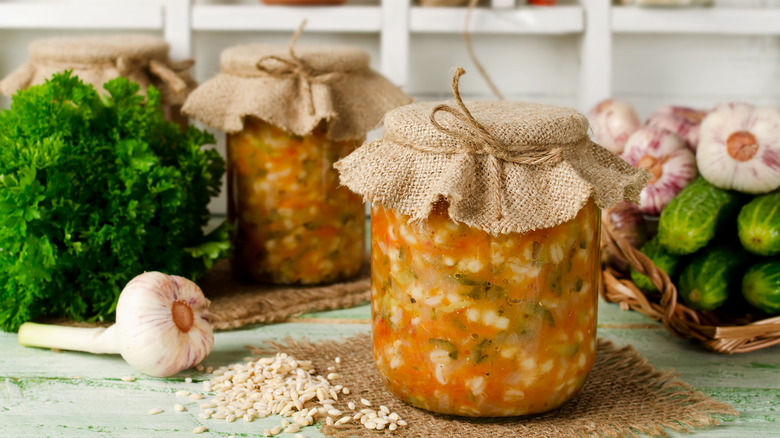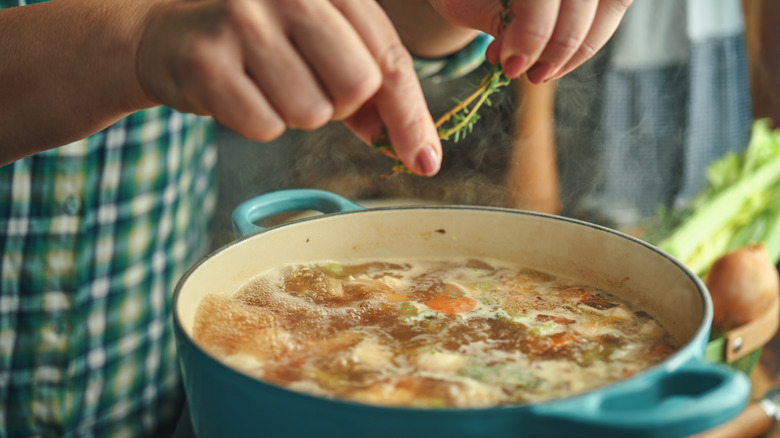How Long Does Home Canned Soup Last Before Expiring?
Canning homemade soup allows you to conveniently enjoy the fruits of your kitchen labor whenever you see fit. Home canning is also quite effective for preserving soup for an extended period. With most homemade soups, unopened cans will remain safe for consumption for up to one year. At the absolute latest, soup should be consumed within two years of canning, at which point the risk of foodborne illness becomes higher.
Keep in mind that this duration is only applicable when soups are stored in the proper conditions, meaning areas of the home with a temperature range between 50 and 70 degrees Fahrenheit. Extremely high temperatures above 95 degrees Fahrenheit are particularly harmful when it comes to food spoilage, so protect cans from sources of heat and direct sunlight. The storage area should also be free of moisture to deter the growth of mold and mildew.
Even with the right steps, canned soups may still go bad before their anticipated expiration date. Should this occur, knowing the signs of spoilage can spare you some unpleasant health effects.
Signs it's time to toss that can
Home canning is a very delicate process, and even small canning errors can impact the integrity of the food. Fortunately, canned soup usually exhibits some clear signs of spoilage that you can easily spot when you know what to look for. The condition of the jar or can of soup will be your first indicator that the food should be discarded. Bacterial buildup within a container can cause the sides or lid to swell, which means that the soup is no longer safe to eat. Defects in the container should also be noted, as cracks and holes expose the soup to air, which promotes the growth of germs.
Upon opening the can or jar, pay close attention to the characteristics of the soup. Foul odors, such as intense sour or bitter smells, signal bacterial growth. Discoloration of soup ingredients is also problematic, as is the presence of mold or foam within the liquid. If any of these signs are present when opening a can of soup, it should be discarded immediately.
Best practices when home canning soup
You should always follow whatever canning recipe you're using to ensure a safe and delicious finished product. However, there are some general soup canning tips that can prevent premature spoilage. Extremely high temperatures are necessary to preserve food, and certain soup ingredients impede this process. Flour as a thickener is problematic, as it can prevent the contents of the container from reaching the proper temperature and promote the growth of dangerous bacteria as a result. Noodles and dairy products can cause similar issues, so these ingredients should only be incorporated into the soup after the can is open.
If you're preserving a vegetable soup, be mindful of how full you're making the jar when adding ingredients. Your best bet is to add the vegetables first, until the jar is half full. Next, add liquid, and stop pouring when there's about one inch left at the top of the container. Leaving a little room in the jar ensures all ingredients are evenly covered by the hot liquid, which is key to safely preserving your food for future enjoyment.


